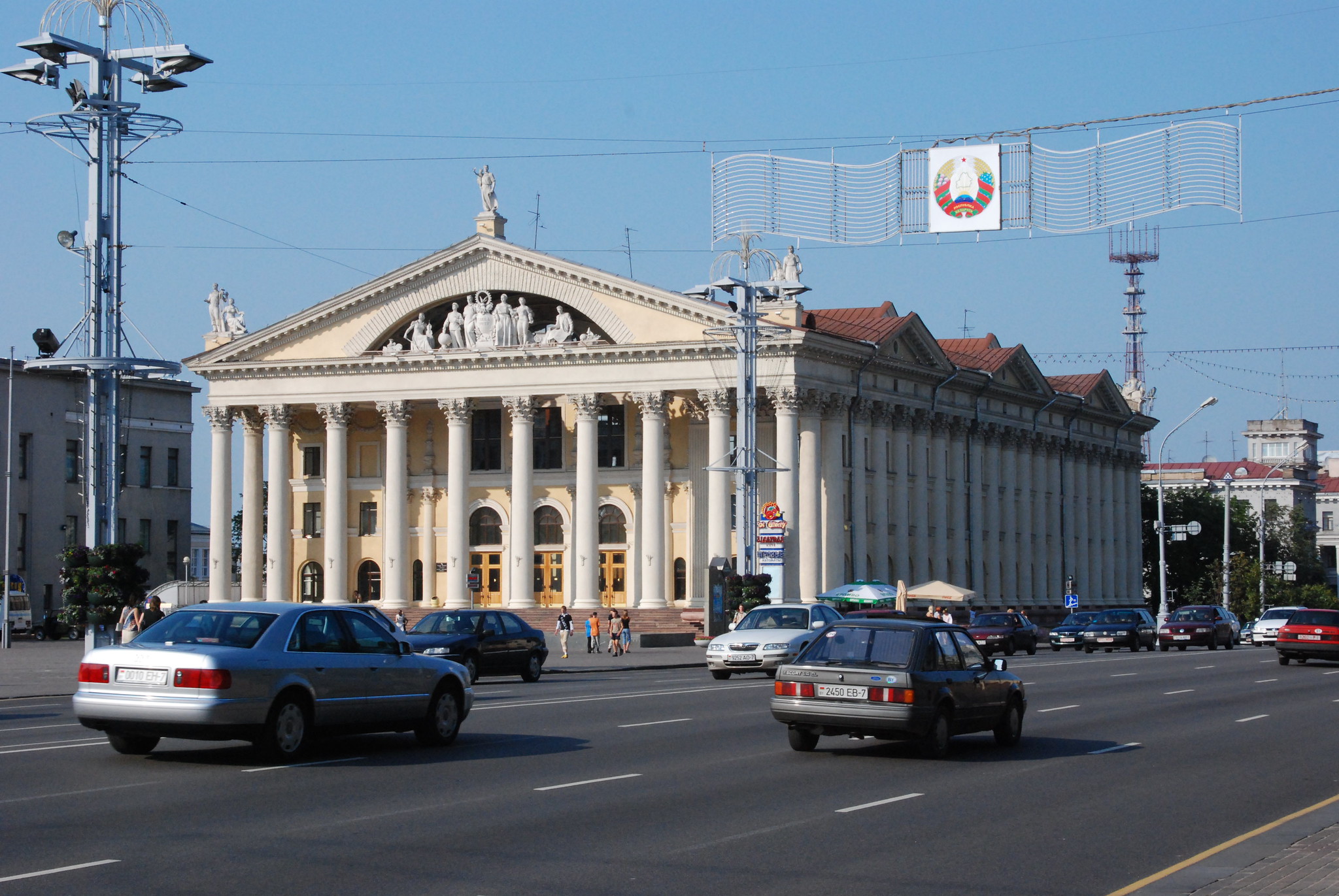Belarus presidential election 2020: (un)obvious choices
The surprisingly calm start to the presidential election campaign in Belarus featured the gathering of signatures in public. Within a few weeks police provocations and arrests have forced the candidates to adapt.
June 15, 2020 -
Maxim Rust
Yahor Azarkevich
-
Articles and Commentary

Palace of the trade unions at Oktyabrskaya square in Minsk Photo: George M. Groutas (cc) flickr.com
In recent years, we have become accustomed to the fact that the topic of Belarus mostly appears in global media in connection with its most important election campaigns. These were usually parliamentary or presidential elections. The geopolitical situation in the region has changed significantly over the past five years – and Belarus has increasingly started to appear in the media in context other than elections. However, this year’s election campaign is unique.
Firstly, the Belarusian establishment began to significantly diversify its foreign policy directions. There were efforts to normalise relations with the West, and on the other hand, attempts were made to reduce Russia’s political influence. This policy has partly changed the character of the socio-political relations in the country. Secondly, the consequences of the COVID-19 outbreak in Belarus (and the response of the authorities to it) has greatly influenced the dynamics of political processes. The initial aftermath of the coronavirus pandemic highlighted the weaknesses of both the ruling elite and the counter-elite. They also began to reveal the hidden mobilisation potential of the Belarusian society. Thirdly, this year’s campaign has lost the dichotomous division we have known for many years: authorities vs political opposition. Fourthly, as a result of the factors mentioned above, several new candidates have emerged who do not want to be associated with either the authorities or the opposition. They present themselves as an alternative to the political and social system, and, crucially, have the greatest public support.
Two weeks ago, we covered the emergence of civil society in Belarus during the COVID-19 pandemic. While the level of political activity appeared unprecedented even then at the very start of the presidential campaign, it has only developed further since. During these two weeks, more and more people have been coming to the signature collection posts to support alternative presidential candidates Sviatlana Tikhanouskaya, Viktar Babaryka and Valery Tsapkala. At the moment, all these candidates have reportedly surpassed the threshold of 100,000 signatures required for the official registration as a candidate: Babaryka has almost 350,000, Tsapkala has at least 150,000, and while Tikhanouskaya’s exact numbers are unknown, her team has told independent media that there were more than 100,000. Yet the campaign has been far from smooth so far for these candidates.
On May 29th, Sviatlana Tikhanouskaya’s husband, head of her campaign and famous blogger Siarhej Tikhanousky was arrested in Hrodna as a result of a police provocation. He was most recently accused of severe violations of mass gathering laws: if declared guilty, he may be sentenced to prison for up to three years. While waiting for the official charges to be pressed, the police have also found 900,000 US dollars in cash presumably hidden at Siarhej’s house: according to Sviatlana Tikhanouskaya, this money has been planted by the police and only found during a third consecutive search conducted in the night. Last week, Sviatlana announced that she would suspend signature collection in larger cities as the risk of further provocations and detentions has become high, with numerous members of the initiative group already put in custody. On Saturday, Siarhej Tikhanousky has been transferred into an isolated prison ward for unknown reasons.
For Viktar Babaryka and Valery Tsapkala, these weeks were less stressful, at least until last Thursday. Babaryka has already confirmed the receipt of more signatures than any other democratic candidate in Belarus’ history and still has many more to verify. President Lukashenka has been giving offensive comments and criticising both Babaryka and Tsapkala, yet no firmer action has been taken throughout the campaign. On Thursday, however, charges were put forward against Belgazprombank—which Babaryka has been heading until announcing his presidential bid—accusing governing bodies of tax evasion and money laundering. The next day Belarus’ security services announced that they possessed sufficient information to claim that Babaryka himself was involved in the aforementioned illegal schemes and a new head of Belgazprombank had been proposed by the government. These actions have been met with criticism from its major stakeholder Gazprom which deemed those actions illegal. It is still not clear whether Viktar Babaryka himself is indeed a part of the case, but those found guilty may be charged with up to 14 years of prison. Security services have also appeared near Tsapkala’s headquarters with no official clarification as of yet.
In light of the rapidly changing presidential campaign and as a part of our new series dedicated to the election in Belarus, we recommend Maxim Rust’s article on the initial effects of COVID-19 in Belarus and Yahor Azarkevich’s text on the beginning of the election campaign, which began during the pandemic.
Maxim Rust is a political analyst and researcher of political elites in post-Soviet area. He has a PhD in political science from the University of Warsaw. He is also a contributing editor with New Eastern Europe.
Yahor Azarkevich is a freelance journalist and an MA student at the University of Glasgow and Jagiellonian University in Kraków.
Dear Readers - New Eastern Europe is a not-for-profit publication that has been publishing online and in print since 2011. Our mission is to shape the debate, enhance understanding, and further the dialogue surrounding issues facing the states that were once a part of the Soviet Union or under its influence. But we can only achieve this mission with the support of our donors. If you appreciate our work please consider making a donation.

































